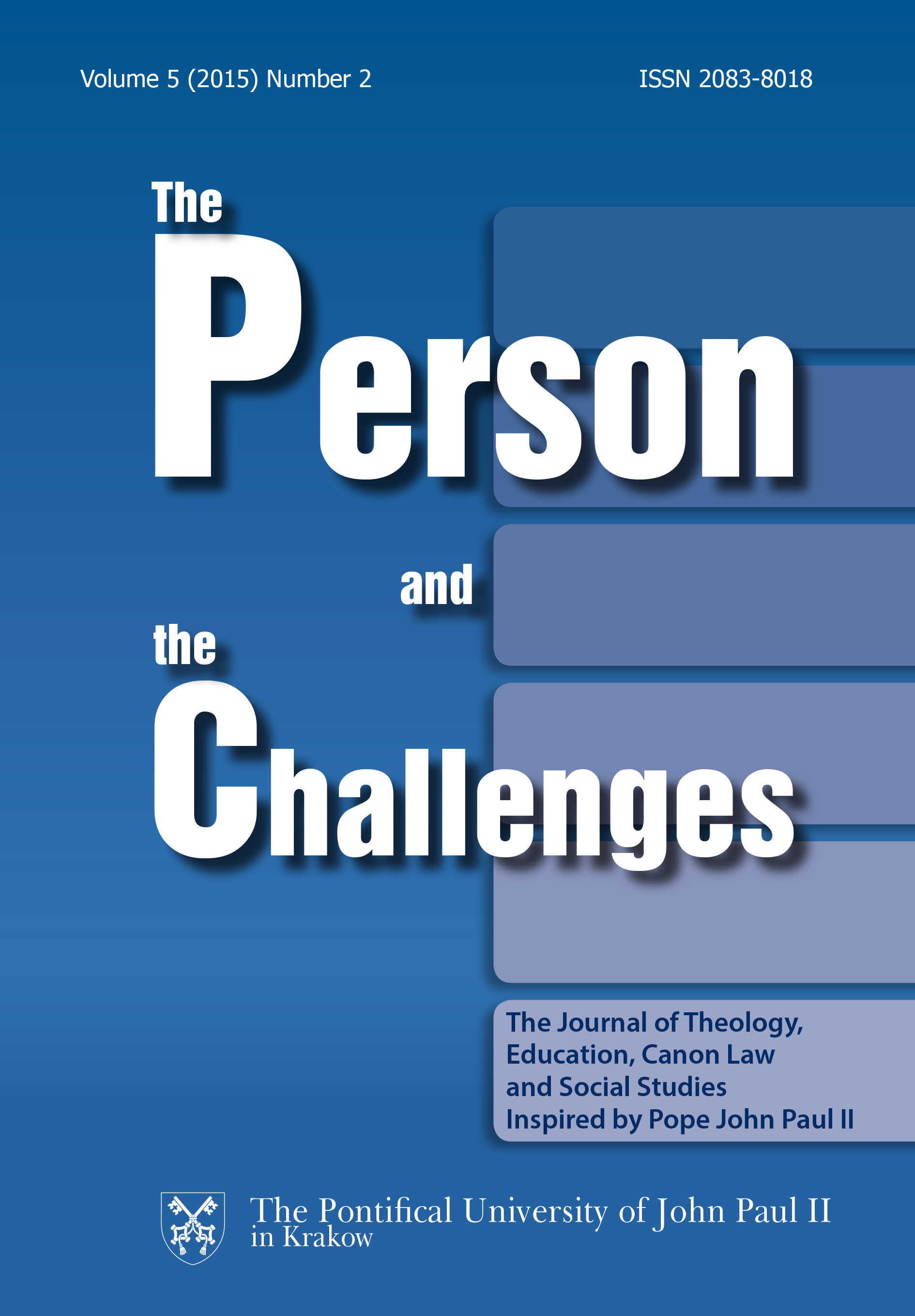Parents as parents-in-law in the light of Erik Erikson’s theory
DOI:
https://doi.org/10.15633/pch.1526Słowa kluczowe:
Parents-in-law, Erik Erikson, family roles, developmental stage, upbringingAbstrakt
The role of parents-in-law according to Erik Erikson’s theory, has been analyzed in this paper.Erikson claims that a man develops throughout his whole life, solving subsequently appearing crises. The proper solution of these crises enables the achievement of integration. The results of research, carried out by Menelaos Apostolou, regarding the influence of parents on the choice of a son or daughter-in-law have been presented in this paper. These results show that the marital choices of offspring most often lack their parents’ approval, and they often also lead parents to use manipulation techniques. Such regularity is often the basis of difficult spouse-parent-in-law relationships.
The role of parents-in-law takes place in the period of middle adulthood in which an individual faces the productivity-stagnation process. It has been assumed that the role of parents-in-law is embedded in this crisis. According to Erikson, the crisis in the period of middle adulthood, as well as in any other period, is the friction of two opposing pursuits: progression and regression, where in case of middle adulthood, the progression stage is called productivity and regression – stagnation. Moreover, social and individual factors (including biological and psychological levels) activating regressive and progressive states in parents-in-law have been submitted for analysis.
It is stressed, in this paper, that the parents’ virtue, which is care, is not limited only and exclusively to their own biological offspring – the process of upbringing should also include a broad understanding of the notion of providing welfare to future generations.
Bibliografia
Apostolou M., Sexual selection under parental choice: The evolution of human mating behavior, Hove 2014, Psychology Press.
Apostolou M., Papageorgi I., Parental Mate Choice Manipulation Tactics: Exploring Prevalence, Sex and Personality Effects, “Evolutionary Psychology” 12 (2014), p. 588–620.
Apostolou M., Parent-offspring conflict over mating. The case of beauty, “Evolutionary Psychology” 6 (2008), p. 303–315.
Bee H., Boyd D., The Developing Child, Boston 2009, MA: Pearson.
Braun-Gałkowska M., Psychologiczna analiza systemów rodzinnych osób zadowolonych i niezadowolonych z małżeństwa, Lublin 1992, Towarzystwo Naukowe KUL.
Brzezińska A., Modele i strategie zmiany rozwojowej, in: J. Strelau (ed.), Psychologia. Podręcznik akademicki, Gdańsk 2006, Gdańskie Wydawnictwo Psychologiczne, p. 239–283.
Erikson E., Childhood and Society, New York, 1985, W. W. Norton & Company.
Ferenz K., Znaczenie rodziny w życiu człowieka z perspektywy osób starszych, in: A. Ładyżyński (ed.), Rodzina we współczesności, Wrocław 2009, Oficyna Wydawnicza ATUT, p. 97–106.
Hall C., Lindzey G., Teorie osobowości, Warszawa 1998, Wydawnictwo Naukowe PWN.
Harwas-Napierała B., Komunikacja interpersonalna w rodzinie, Poznań 2008, Wydawnictwo UAM.
Havighurst R., Research on the developmental task concept, “The School Review” 5 (1956), p. 215–223.
Juroszek W., Autoprezentacyjne uwarunkowania relacji synowa-teściowa ze szczególnym uwzględnieniem ingracjacji, “Wychowanie na co Dzień” 12 (2013), p. 33–39.
Juroszek W., Relacje małżonków z matką i teściową w świetle teorii niezależności-współzależności Ja, “Kwartalnik Naukowy Fides et Ratio” 18 (2014), p. 64–73.
Juroszek W., Wybór współmałżonka – aspekt zadaniowy, ewolucjonistyczny i planowy, “Kwartalnik Pedagogiczny” 1 (2015), in press.
Maciantowicz E., Poglądy współczesnej młodzieży na starzenie się i starość, in: S. Steuden, M. Marczuk (eds.), Starzenie się a satysfakcja z życia, Lublin 2006, Wydawnictwo KUL, p. 29–38.
Przybyła-Basista H., Mediacje rodzinne w konflikcie rozwodowym. Gotowość i opór małżonków a efektywność procesu mediacji, Katowice 2006, Wydawnictwo Uniwersytetu Śląskiego.
Szczukiewicz P., Rozwój psychospołeczny a tożsamość, Lublin 1998, Wydawnictwo Uniwersytetu Marii Curie-Skłodowskiej.
Pobrania
Opublikowane
Numer
Dział
Licencja
Prawa autorskie (c) 2015 Weronika Juroszek

Utwór dostępny jest na licencji Creative Commons Uznanie autorstwa 4.0 Międzynarodowe.
Autorzy publikujący w czasopiśmie udzielają jego wydawcy zgody o następującej treści:
- Autor zachowuje autorskie prawa majątkowe do utworu, a jednocześnie udziela wydawcy czasopisma zgody na jego pierwszą publikację w wersji drukowanej i wersji online na licencji Creative Commons Uznanie autorstwa 4.0 Międzynarodowe oraz zgody na wykonywanie opracowań, w tym przekładów.
- Autor ma możliwość udzielania zgody niewyłącznej na opublikowanie utworu w wersji, która ukazała się w czasopiśmie (np. zamieszczenia go w repozytorium instytucjonalnym lub opublikowania w książce), wraz z informacją o jego pierwszej publikacji w czasopiśmie.
- Autor może umieścić swój utwór online (np. w repozytorium instytucjonalnym lub na swojej stronie internetowej) jeszcze przed zgłoszeniem utworu do czasopisma.

